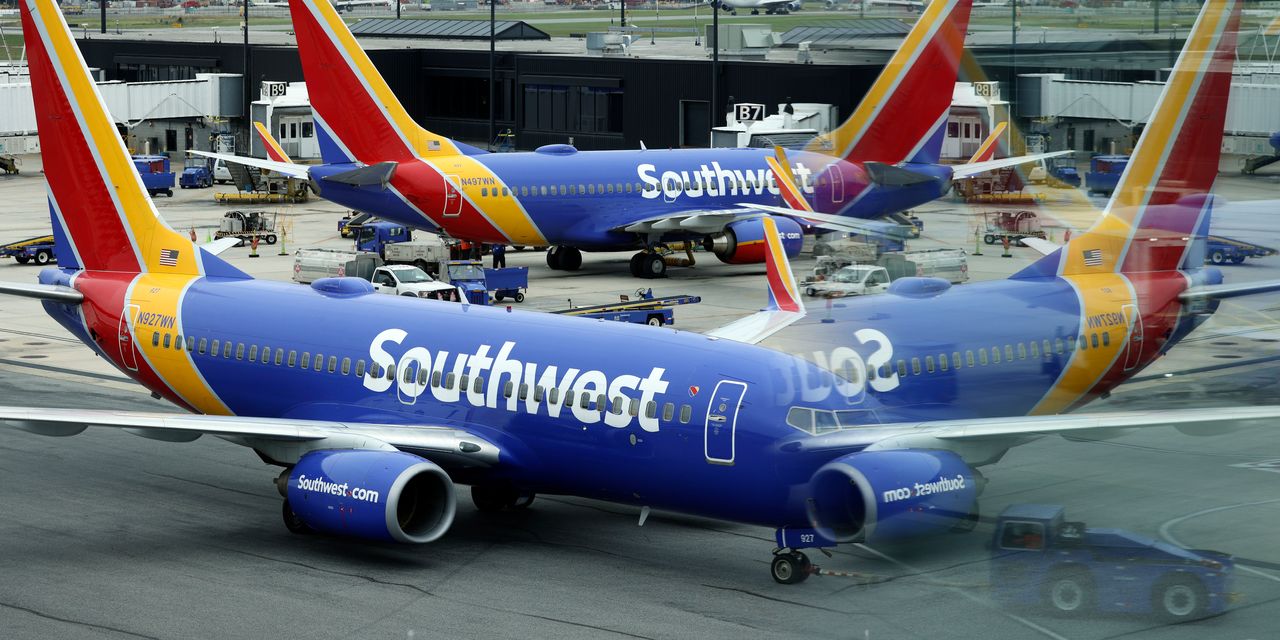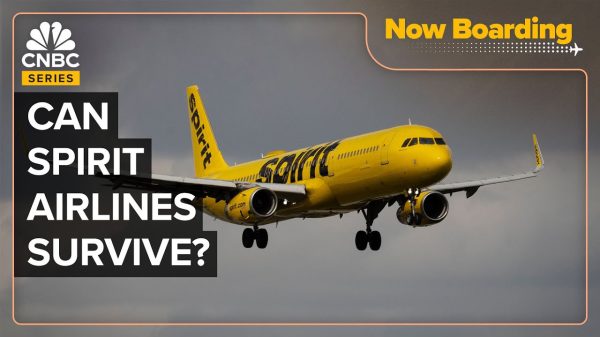The airline sector was suffering another broad selloff Tuesday, amid worries over how a government shutdown will hurt the industry and as falling ticket prices raise concerns over profitability.
The U.S. Global Jets ETF
JETS
dropped 1.2% in afternoon trading toward a fifth-straight loss and the lowest close since Dec. 28, 2022. The ETF was also in danger of its fourth-straight weekly loss, and ninth weekly loss over the past 10 weeks.
Among the hardest hit air carrier stocks during the recent selloff were those of more domestic-focused air carriers.
Southwest Airlines Co.’s stock
LUV,
sank 2.8% toward the lowest close since May 15, 2020, according to Dow Jones Market Data. The stock has dropped 9.9% amid a seven-day losing streak, and has tumbled 15.9% over a 19-session stretch in which it has declined 16 times.
Shares of JetBlue Airways Corp.
JBLU,
fell 1.0%, and was on track for the lowest close since May 22, 2012. They were headed for an eighth-straight selloff, which would be the longest such streak since the nine-session stretch that ended March 23, 2020.
Elsewhere, Alaska Air Group Inc.’s stock
ALK,
slipped 0.8% toward the lowest close since Oct. 29, 2020, and Hawaiian Airlines parent Hawaiian Holdings Inc. shares
HA,
dove 3.3% toward the lowest close since July 8, 2013.
Meanwhile, shares of American Airlines Group Inc.
AAL,
lost 1.1% toward a five-month low, of Delta Air Lines Inc.
DAL,
slumped 1.5% toward a four-month low and of United Airlines Holdings Inc.
UAL,
gave up 0.6% toward a five-month low.
If Congress fails to pass legislation to renew funding by Sept. 30, and the federal government shuts down, Deutsche Bank’s Michael Linenberg said the airline industry could be hurt in more ways than one.
For one, thousands of non-essential Federal Aviation Administration employees would face leave of absences, airport construction would grind to a halt and FAA-certification programs would be delayed, Linenberg wrote in a recent note to clients.
In addition, while air traffic controllers are deemed essential government employees and therefore would remain working during a shutdown, air traffic controller training would be halted, which would exacerbate the current situation in which rosters are “severely understaffed,” Linenberg noted.
What has also been weighing on airline investor sentiment, is that while overall system sales remain positive, prices continued to fall, declining 2.7% in the past week after being down 2.0% the week before, with both domestic and international flights seeing weakness, as BofA Securities analyst Andrew Didora noted.
Also, international leisure sales, which had been a source of strength, have decelerated for a seventh-straight week. “We see the decelerating trend as a normalization of international leisure demand following considerable outperformance versus domestic through much of the year,” Didora wrote.
Lower prices at a time that fuel prices are rising also fueled concerns over
The Jets ETF has lost 1.1% year to date, while the S&P 500 index
SPX
has rallied 11.4%.
Read the full article here













